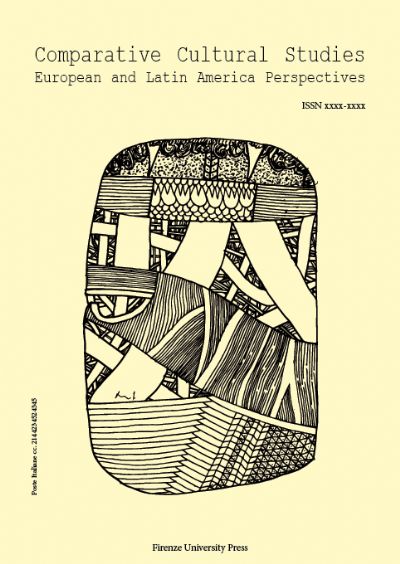Coordinated by:
María Soledad Balsas, CONICET-UNLaM, Argentina
Marcello Ravveduto, Università di Salerno, Italia
“Parlate della mafia. Parlatene alla radio, in televisione, sui giornali.
Però parlatene.“
Paolo Borsellino
The media configure an interpretive framework that filters the perception of reality, establishes the issues on which an opinion must be formed and the hierarchy between them. It is well known that audiences tend to give importance to the arguments, people and events to which the media give more space and more attention. Both the omission, the non-coverage or the intentional submissive or penalized treatment suffered by certain events, objects or people, as a result of space restrictions, internal and/or external pressures or prejudices, entail cognitive, cumulative and sedimented effects on time, with consequences for the knowledge systems that audiences structure stably, that is, in the long run. In Latin America, the role of the media is of key importance given the scarcity of (other) reliable sources onItalian mafias operating in the region.
But the critical issues of the global agenda not only enter the social imaginary and public opinion through the classic forms of information, but also –and above all- through a range of genres and formats that has expanded all over the cultural industry. Not surprisingly, Hollywood-style fictions still provide the basic interpretive scheme for tackling mafia-related issues that would otherwise remain largely inaccessible to the general public today. In this scenario, the problem is no longer the absence of information but the excess of domesticated representations that tend to (self)reproduction. However, research efforts have predominantly concentrated on mainstream news coverage.
In order to contribute to overcoming the information gaps in the era of globalized mafias, the articles included in this issue will address: i) the discourses that media in Latin America produce about Italian mafias, either indifferent countries inside the region or in Italy; and ii) the discourses that media in Italy build on Italian mafias’ projection in Latin America.
Unpublished case studies or in comparative perspective ones will be taken into consideration in order to shed light on the diachronical/synchronical conditions of production/recognition of messages that either mass or ethnic media, through informative as well as fictional genres, put into circulation about the ‘ndrangheta, the cosa nostra, the camorra and the sacra corona unita in relation to LatinAmerica.
Some of the topics to be covered in this issue include:
i. The coverage of Italian mafias in the printed/digital press in different countries.
ii. The reception of news in audiovisual format about Italian mafias in LatinAmerica.
iii. The treatment of Italian mafias in the ethnic press.
iv. The stereotype of mafioso in fictional and non-fictional genres.
v. Genre and style in the “narconovelas”.
vi. The ways of seeing global, transnational and/or local fictions on Italian mafias in the Latin American context.
vii. Thematic, rhetorical and enunciative features of Latin American narratives about Italian mafias in social networks.
viii. The relationship between mafias and Italian migrations in literature, music and visual arts, among other cultural expressions, in Latin America.
ix. Mafias in linguistic/urban landscapes in Latin America.
xi. Mafias and gender identities.
We will receive proposals that fall under the following categories:
Research papers: As the result of an empirical approach, should have the following sections: a) Introduction, with the presentation of the object of research and a rationale, b) Literature review, c) Method, d) Results, and e) Conclusion.
Essays: Academic original pieces of work around one of the topics considered for this issue, with these sections: a) Introduction, with the presentation of the main argument, b) Body, with the development of premises that support the main idea, and c) Conclusion.
Book reviews: Brief academic discussions about a recently published work, related to this issue.
Proposals either in English, Spanish or Italian language following these guidelines are to be considered:
i. Title (text centered and bold font), Abstract (justified paragraph alignment) and Keywords (justified paragraph alignment) in the original language and in English.
ii. Body of text should be in justified paragraph alignment.
iii. Times New Roman font, size 12, double line spacing.
iv. Citation based on American Psychological Association Style Guide, 6th edition.
v. In both papers and essays, total length should be between 35,000 – 40,000characters (including spaces), counted from the Title, to the end of the References section. In book reviews, extension should be between 20,000 – 25,000 characters(including spaces).
vi. If Tables are used, they should be pasted in the body of text as objects (not as images), so they can be edited.
Proposals should be sent in two different files: anonymous and complete. Anonymous files should not contain author´s name anywhere in the body of text, self-citations should be marked as (AUTHOR CITATION) and such works should not be listed in References. Author and Institution fields should be removed from the file metadata. Complete files should include full author name, in the next line after the Title, with institution belonging and email, in a footnote. Any institutional mention or credit to any funding from which the work is derived should be placed at the bottom of the page, from the title. Proposals must be sent by email tomsbalsas@conicet.gov.ar and mravveduto@unisa.it
Dates:
Reception of proposals: until September 30, 2022.
Process of peer reviewing: from October 1 to December 31, 2022.
Accepted proposals proofing: from January 1 to February 15, 2023.
Estimated issue publication date: May 15, 2023.
Download the PDF of the Call (ITA | ENG | CASTELLANO)

